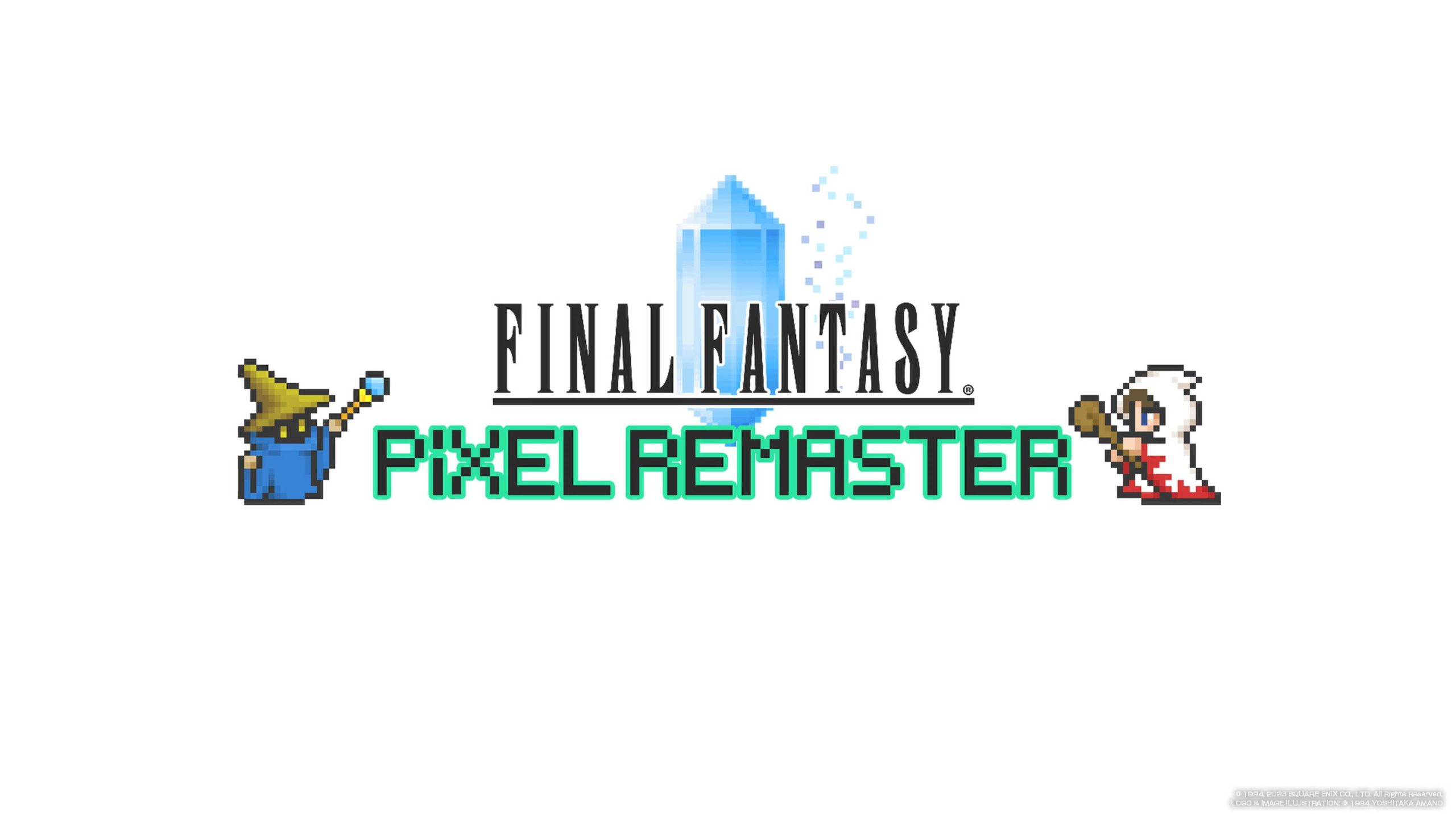Regardless of how one feels towards the series’ shift towards more fast-paced spectacles, there’s no denying the power that Final Fantasy has behind it. Whilst it would be fair that many were introduced by Squaresoft’s PlayStation debut, Final Fantasy VII, the franchise is coming up to its 40th birthday.
Starting on the NES, Final Fantasy has seen imitators, spin-offs, rip-offs, webcomics (remember 8Bit Theatre?) over the last few decades. But what about the ones that started it all? The early adventures that paved the way for the continued entries now? How many of you missed the majesty of Final Fantasy VI, for example?
Well, worry not, as now Final Fantasy I-VI are available as both bundle and individual title. What we’re doing today is looking at the bundle as a whole, much like we did with the Turtles Cowabunga Collection. Equip that “+1 Reading” skill and let’s dive into the past…
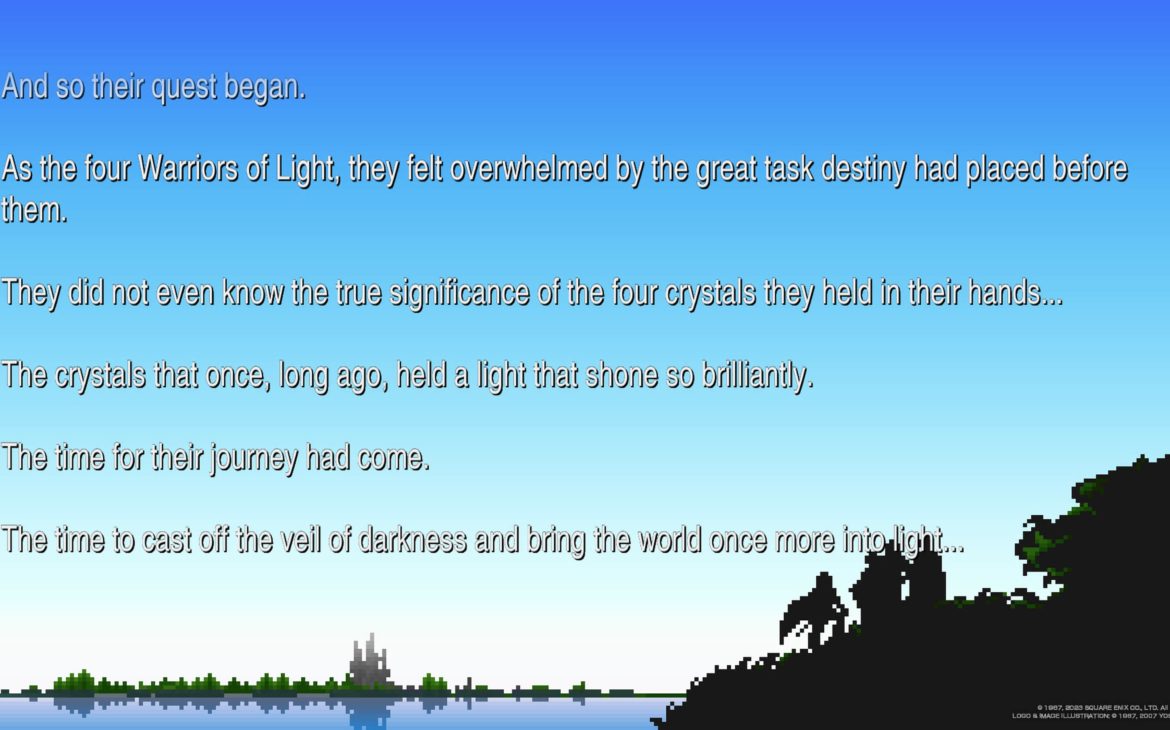
So, How “Final” Is This Fantasy Then?
If one is unfamiliar with the Final Fantasy series, here are two key points: it started off in 1987, and that the above joke is about as worn out as a NES pad the first game was played on. Anyway, the concept of Final Fantasy came about after the success of Dragon Quest in Japan, as well as Hironobu Sakaguchi’s desire to emulate popular “Western fantasy” games. With a small team, including artist Yoshitaka Amano, who creates the now-recognisable series artwork, the first title was born.
Launching on the Nintendo Entertainment System, their proprietary static console, it was a success. The console market hadn’t seen much of this type of game, with Final Fantasy (the first) going on to sell half a million in Japan alone. Story-wise, by today’s standard is pretty rote, but back then it was a fresh take on the role-playing genre. Four unnamed Warriors of Light rock up, start a seemingly normal good-versus-bad adventure, and by the end are defeating Chaos and stopping time paradoxes.
This led the way for a Fantasy-sized gap in the market, one that Squaresoft saw fit to put the Final brand into. Two more NES sequels, a jump to the SNES for three more, as well as multiple spin-offs and franchise tie-in’s. Did you know that Final Fantasy Tactics shares the same world as Final Fantasy XII and Vagrant Story? You do now.
But without going full series retrospective (which is something I know Toby could do in an evening), this is more a focus on those first six: from battling Chaos to mad clowns and destroying the world(s).
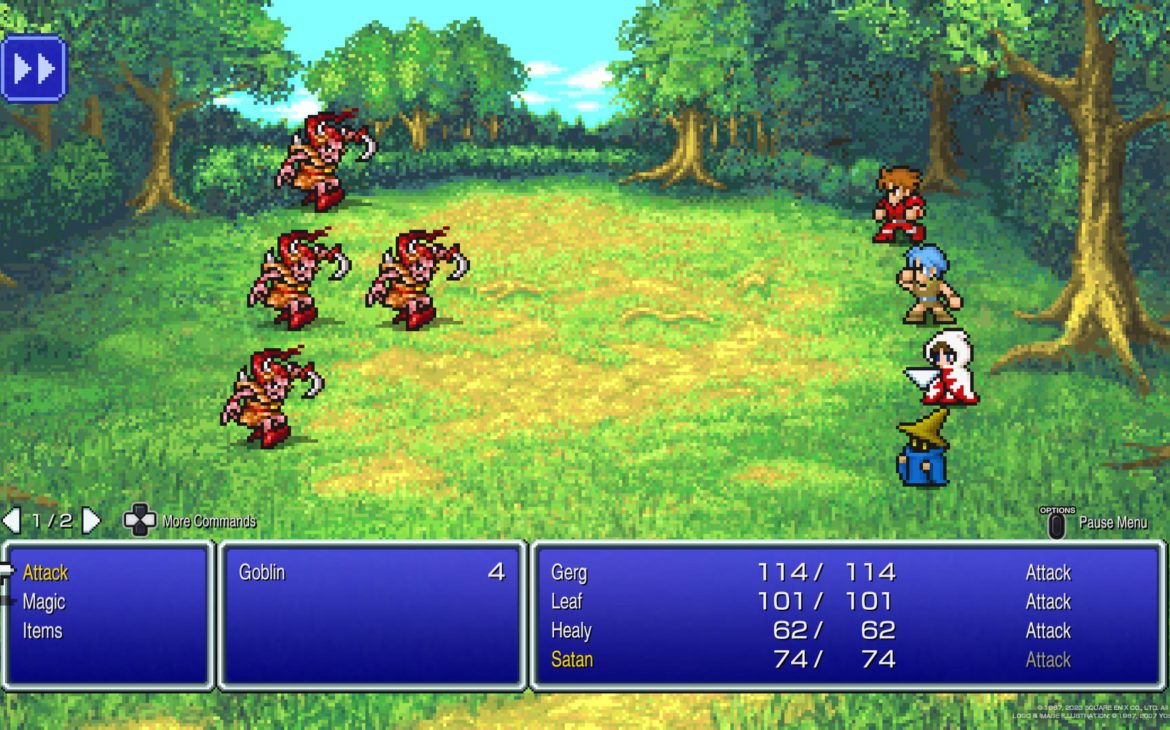
Saving The World Again, Is It?
As mentioned earlier, this is a broad look at this remastered package, not inherently a deep dive into each game. That being said, if some readers are unaware of what constitutes a Final Fantasy, allow me to give a somewhat abridged gameplay tour. If you know, you can skip this bit.
Final Fantasy is one of the earliest, “basic” examples of a JRPG. Any trope about turn-based combat, or “please find this specific item in the dungeon down the road”, more than likely has been covered in these games. Not that that’s a bad thing, it’s just how simple the JRPG process was back in its earlier days. You, the player, take a party of destined heroes/vagabonds/amnesiacs through towns, castles and dungeons, always on some quest to save the world.
The meat of each game is, besides the story, the combat and leveling up. The first game is basic enough, by the third a job system introduced (think Bravely Default for a modern comparison), and by VI we’ve got a story than some would say is better than most of the current ones.
If it seems like I’m being glib, I suppose I am. As I said, to break down a Final Fantasy fully would be a review in itself, and with six titles it’d be too much. The main concept is easy enough: a number of heroes save the world per title. You can even give them wacky names, if you like.
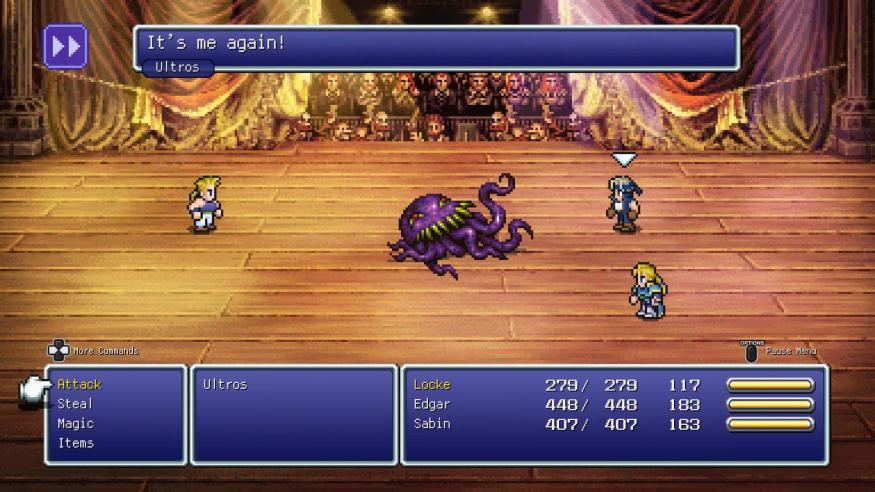
Pixel Perfect?
So, generalisation out of the way, you might be wondering what’s been improved here. To look at, above, it would seem like just a jazzed up SNES game. In many regards, it is. It’s more the NES titles that have the biggest differences. The jump from 8bit to… well, a hybrid of that and 16bit-like pixels is very noticable.
This may not seem like much to gamers that are expecting all the high fidelity graphics, but to those that did grow up with them, it’ll be a nice quality of life improvement. As will the audio, which has been more than just jazzed up. A full rearrangement, under the supervision of original composer Nobuo Uematsu himself, can be played instead.
It’s a nice addition, but completely optional for those that prefer ye olde chiptune soundtracks. Personally, I prefer the newer ones, makes it less grating on the ears after a while.
So, in broad terms, these games aren’t remakes, nor ports. Consider them remasters: the same games, but spruced up with modern(ish) visuals and soundtracks. But that’s not the only improvements they bring.
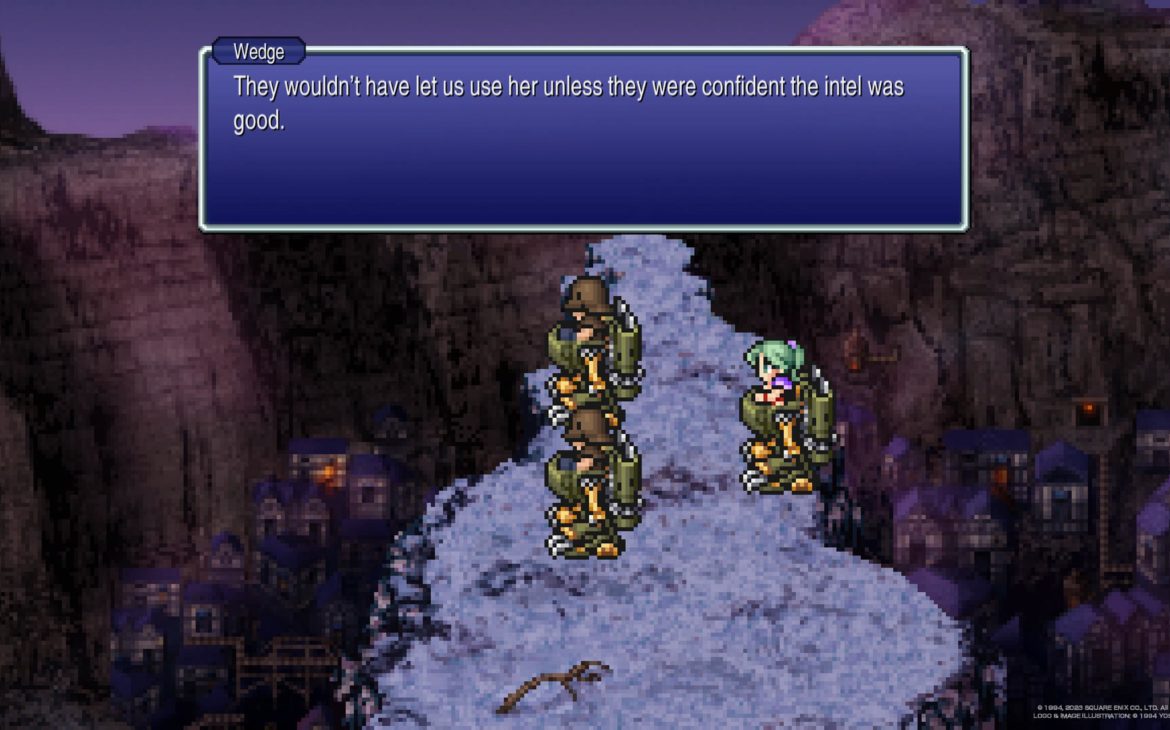
That’s A Lot Of Fantasy
You might be thinking, “Six games? That’s an insane amount of time to commit” and you’d be right. Players would be look at, on average, about thirty hours a game. Some might know exploits and speedruns, but we’re just rounding up here. Fortunately, the Pixel Remaster Collection has those without the freedom of time we had as kids covered.
Boosts, in the shape of experience and money (and other varying factors in some games) help dramatically. If, like me, you want to get a good chunk done for review, then a fours-time multiplier will help you fly through levels. Same with money, making it easier to buy better equipment without the grind. Of course, this is optional, for those that want to play the original way.
Better still, there’s a quick stick-click prompt to switch encounters on or off too. Say players just want to explore, or get to a particular dungeon/town without being harassed by hordes of nasties. Seriously, that more frequent than those high street clipboard types. However, the danger there is no fights: no experience. So you have to gauge it as not to become under-leveled for a boss fight/dungeon.
Fortunately, and this one is a godsend, there’s autosave. Yes, that’s common in most games now, but back then there was nothing worse than losing hours to a boss or harder area. In conjunction with manual saving, this can take that pressure off of heading into the next area somewhat. I know I relied on it when I took on Garland straight away in the first game (although that was me being cocky, admittedly).
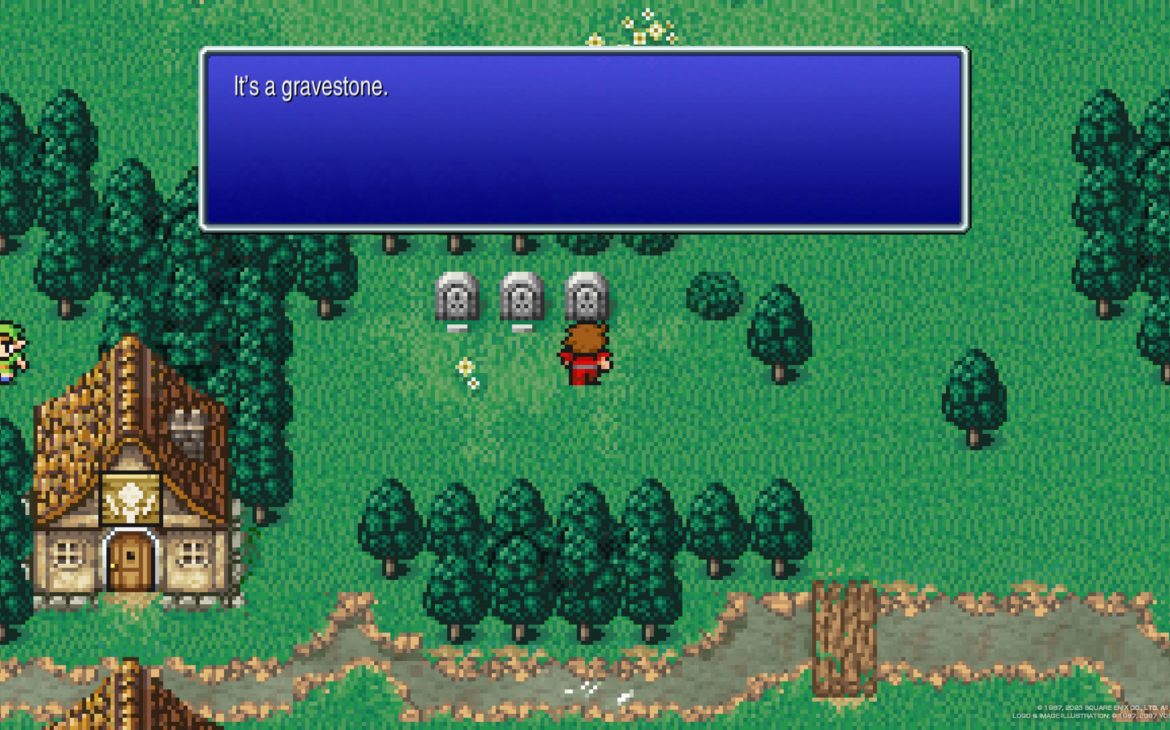
The Cracks Of Time
In terms of negatives or “downsides” to this collection… there isn’t many, really. Or if they are, they’re purely subjective. If one goes in expecting fully rebuilt mechanics, or up-to-date graphics, then they’ll be in for a surprise. But then, some of these have been ported across handhelds and emulators over the years so they’re not completely new.
As I say, I haven’t played the older ones besides VI, so I couldn’t tell you how much it differs from the original (besides the graphically obvious). I’m sure someone out there is seething at the new resolution, or the aspect ratio or something equally asinine.
The only issue I’ve seen in the real world is trying to get a physical copy of it. In short: don’t, unless you’re willing to part silly money for it. But that’s not pertinent to the review, more an aside for those that like their collectibles.
In terms of extra content, there’s audio and artwork libraries attached to the games… and that’s about it. Trophies and achievements can make players want to complete more than just the main grind, but there’s no real “added content” other than the improvements. On the bright side, the storage size is small enough per game so you might squeeze a couple in around Jedi: Survivor’s 150gb madness.
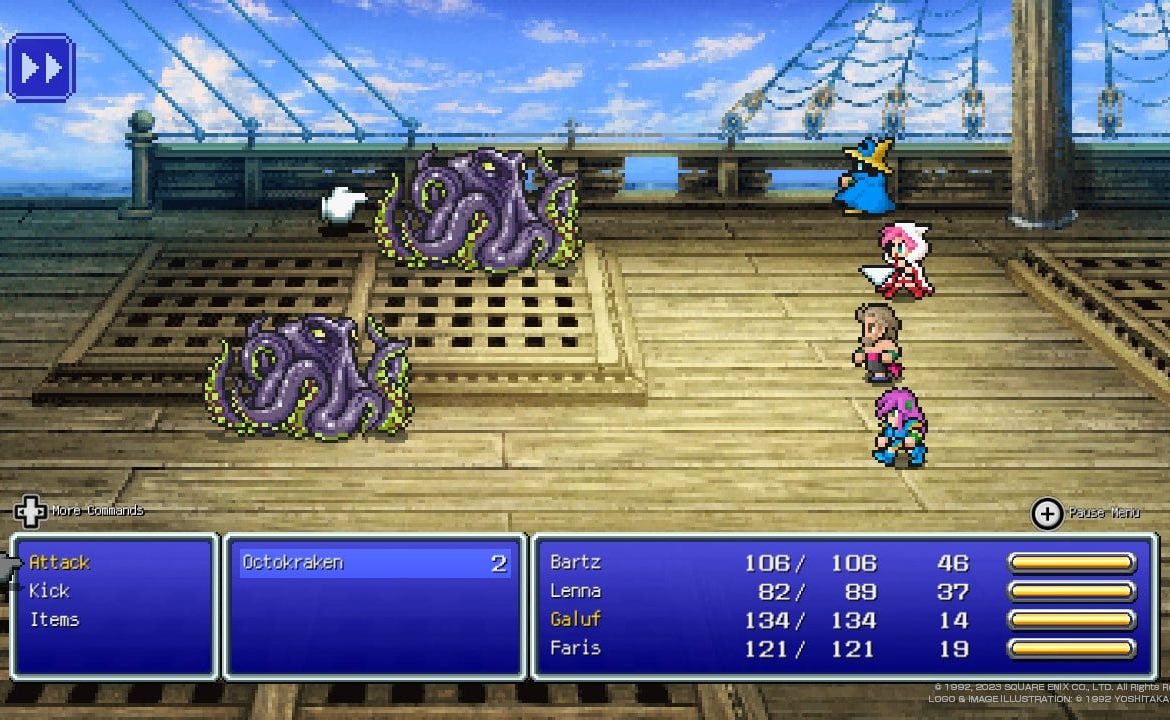
A Time-Capsule Fantasy
To summarise, there isn’t really more to elaborate on with the Final Fantasy Pixel Remaster Collection. It does exactly what it says on the tin: offers players a jazzed up version of classic Final Fantasy(s) to play. The extra bonus is you can buy them as a group, or individually if one just wants to cherry pick.
The quality of life improvements and boosting are a welcome bonus for those that have all the time in the world, but not essential. Conversely, those that want to original experience, or as close to as, can play the old fashioned way.
Outside of the main games, there isn’t really much else other than a few galleries to admire. But then, the journeys you take through each should be reward enough, or something.
In short, if you’re going in knowing what you’re getting, it’s a fantastic nostalgia trip. If players are expecting heaps more, loads of bonus content and 4K graphics, then they’ll be disappointed. This is as is: six classic Final Fantasy titles, brought up to play on modern consoles. They’ve been tidied, made easier for those that want it, and have modernised music as an option.
Personally, it’s made me want to play FFVI through. I had the PS1 version, with those notorious loading times putting me off. Now, with boosts and instant loads, I’m tempting to keep pursuing it. So in that regard, it works. It may not draw in new players, but for latecomer series fan, it may spark that interest to play the heritage titles that paved the way.
It may seem like one for the hardcore, but the Final Fantasy Pixel Remaster Collection is for old and new fans alike. Quality of life improvements make it more accessible, whilst retaining the original challenge for the more “old school” fan. Either as a bundle or individual title, there’s a classic for everyone.

The Final Fantasy Pixel Remaster Collection is available now on PlayStation 4 (review platform), Nintendo Switch and PC via Steam.
Developer: Square Enix
Publisher: Square Enix
Disclaimer: In order to complete this review, we were provided with a promotional copy of the game. For our full review policy, please go here.
If you enjoyed this article or any more of our content, please consider our Patreon.
Make sure to follow Finger Guns on our social channels –Twitter, Facebook, Twitch, Spotify or Apple Podcasts – to keep up to date on our news, reviews and features.
